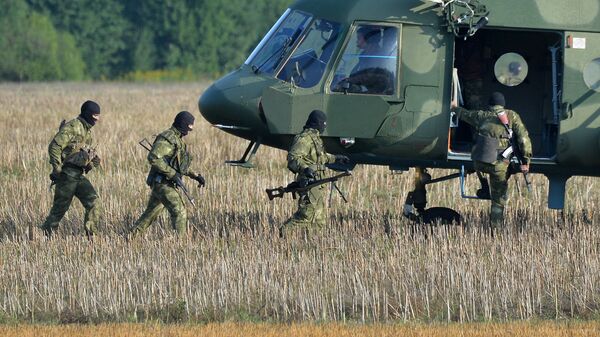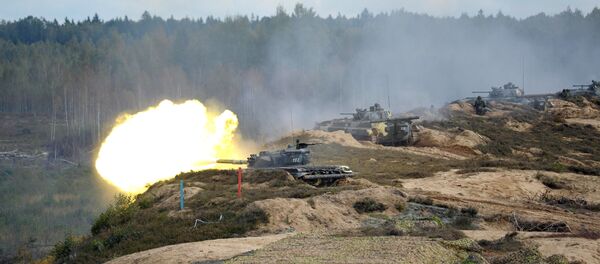The European Union has declared the Zapad-2017 drills, set to start September 14 and run until September 20, meet all criteria established in international agreements. At the same time, Poland and its NATO allies are preparing to hold the Dragon-17 drills on the Russia and Belarus's western borders (September 25-29). The troop numbers in those drills significantly exceed those of Zapad-2017. Polish officials and media have condemned the Russian-Belarusian drills as nontranparent, and suggested that they were a threat to Poland's national security. Deputy Minister of Defense Tomasz Szatkowski said the size of the drills was particularly disturbing.
Speaking to Sputnik, Tomasz Jankowski, international affairs expert at the European Center for Geopolitical Analysis, said that Warsaw was playing a different game, and explained why.
"I would explain this as an element of the game between London and Berlin, or between Washington and Brussels," the analyst said. "Brussels and Berlin…do not support tightening policy toward Moscow. London, Washington and Warsaw, which has unfortunately joined them, are the hawks. Warsaw is trying to use any excuse to deepen hostility toward Russia and Russian policy, both in Polish and in European societies. It is trying to prove that there is no way to establish good relations between Russia and the EU, or Russia and the rest of the so-called free world."
"There were the Anaconda [NATO] drills [in 2016], during which a wide variety of exercises were carried out. There is nothing surprising about the fact that Russia and Belarus are conducting their drills, in the same way as NATO does in Poland. There is no controversy here. The attempt to create a scandal around Zapad-2017 is an effort to exploit various events – quite ordinary events on the international scene, to encourage Europeans to conduct anti-Russian policy."
In this way, the analyst suggested that Poland's Law & Justice Party-led government "supports the myth that brought it to power: that Poland is surrounded and threatened from all sides – by Russia and Germany. Figuratively speaking, the government would like to relocate the country to the middle of the Atlantic Ocean, were it not for the objective reasons making this impossible."
Stretching across western Russia and Belarus, Zapad-2017 will involve some 12,700 servicemen, 70 aircraft, and about 680 pieces of heavy military equipment. Dragon-17, meanwhile, will involve some 17,000 Polish and NATO troops and 3,500 pieces of heavy equipment.
Here, "a rather sad picture emerges — a collision of our ideas and the reality," the observer noted. "The Poles —not the whole nation, but political elites, would like Poland to be a kind of thorn in Russia's side, but do not have sufficient capabilities to do so. So, instead of using its advantageous geographical position to develop relations with Russia, Warsaw is trying to play…into the interests of the United States to try to incite, disarm or even disintegrate Russia from within. We know that such projects are supported by all sorts of Atlanticist forces."
"For me, and for anyone who has even a casual interest in military affairs, it's obvious that armies need training and drills. One doesn't need to be an expert to know this. Drills of this kind are needed to work through various scenarios, even if someone does not like it. And there's nothing shocking about it," Jankowski concluded.



